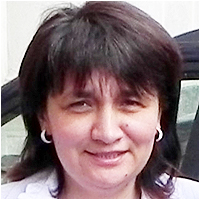The Outcome of an ADHD Parenting Group Training Programme (APEG) In the Peterborough Neurodevelopmental Service (NDS)
Published on: 27th January, 2017
OCLC Number/Unique Identifier: 7317597712
ADHD is the most common neurodevelopmental disorder in children and adolescents with prevalence ranging between 5% and 12% in developed countries. There is ample evidence that carefully structured enhanced behavioural parenting programmes are useful in the management of ADHD.
We assessed the outcome of an ADHD group parenting training programme (APEG) offered between 2014 and 2015 by the Peterborough Neurodevelopmental Service (NDS) in improving the knowledge and skills of carers using a pre-/post-training intervention study.
APEG follows a Parent Advisor Model, consisting of a 6-session programme of evidence-based parenting training.
A total of 27 parents completed the 53 pre- and post-course questionnaires. The knowledge and understanding of the parents increased significantly about all aspects of ADHD diagnosis and management in response to all the 5 questions. The difference between the scores of 0 to 3 and 4 or 5 pre- and post-intervention was statistically significant (chi square 239, df 1, p value <0.01).
The study suggests that provision of a psychosocial intervention programme for parents of ADHD children through the APEG parenting training proved to be effective in significantly improving the level of knowledge and understanding of parents regarding several aspects of ADHD diagnosis, symptom identification and behaviour control.
Prevalence of and institutional factors associated with depression among undergraduate students at Gulu University
Published on: 11th March, 2022
OCLC Number/Unique Identifier: Academic performance; Depression; Undergraduate st
Background: Many institutional factors predispose University students to mental health issues, including depression. However, with no central database for depression in Uganda, literature on depression and associated institutional factors among undergraduate students is scarce. This study examined the prevalence of and institutional factors associated with depression among undergraduate students at Gulu University.Methods: This was a cross-sectional survey among 452 undergraduate students at Gulu University in the academic year 2018/2019 in February and March 2019. A stratified simple random sampling was used to identify the participants. A self-administered questionnaire was used to collect data. Descriptive statistics, including mean and frequency, were used. We conducted a bivariate analysis to determine the association between variables employing Pearson’s chi-square test or Fischer’s exact test. We conducted a multivariate analysis with factors that had significant P-values of less than 0.05.Results: The average age of the respondents was 22.4 (SD - 2.4), more than half (53.1%) were male and 38.50% were in the second year. The results show that 31.19% reported depression. After controlling for age and sex, the results showed that there was a statistically significant correlation between depression and faculty (aOR - 1.15), year of study (aOR - 0.77), happiness with the course (aOR - 0-0.49), satisfaction with academic performance (aOR - 0.45), and satisfaction with academic quality (aOR - 0.61). The results indicated that the predictors of depression among undergraduate students were faculty, year of study, satisfaction with academic performance, and satisfaction with academic quality. Conclusion: A substantial proportion of Gulu University undergraduate students reported high levels of depression. The results, therefore, showed that depression in undergraduate students is an identifiable disorder that needs diagnosis, prevention, and treatment. Faculty, year of study, satisfaction with academic performance, satisfaction with academic quality were predictors of depression. Thus there is an urgent need for counseling, psychoeducation, and preventive mental health services as an essential part of the university setup.
Stage and symptoms of bipolar disorders
Published on: 6th April, 2022
Bipolar disorder (formerly called manic-depressive illness or manic depression) is a mental disorder that causes unusual shifts in mood, energy, activity levels, concentration, and the ability to carry out day-to-day tasks. During mood swings, there may be features of psychosis (delusions and hallucinations) that are mood-congruent. Although psychotic symptoms are seen only in a minority of patients, they explain the early terminology of manic–depressive psychosis. Stage 1a is defined as mild or non-specific symptoms of mood disorder and intervened as formal mental health literacy; family psychoeducation; substance abuse reduction; cognitive behavioral therapy. Euphoric means the experience of pleasure or excitement and intense feelings of well-being and happiness. Certain natural rewards and social activities, such as aerobic exercise, laughter, listening to or making music, and dancing, can induce a state of euphoria. Racing thoughts are consistent, persistent, often intrusive thoughts that come in rapid succession. There is a direct link between depression and anxiety and racing thoughts. Whereas jumping from topic to topic as in the flight of ideas can be observed by others, ascertainment of racing thoughts requires asking the child whether his or her thoughts seem to be going too fast.




